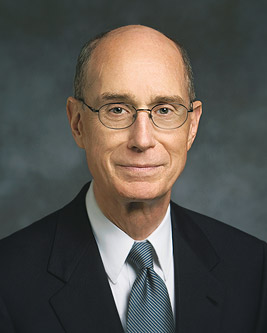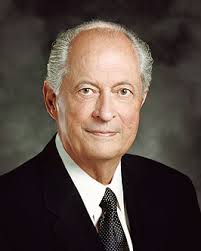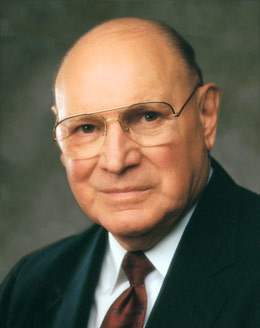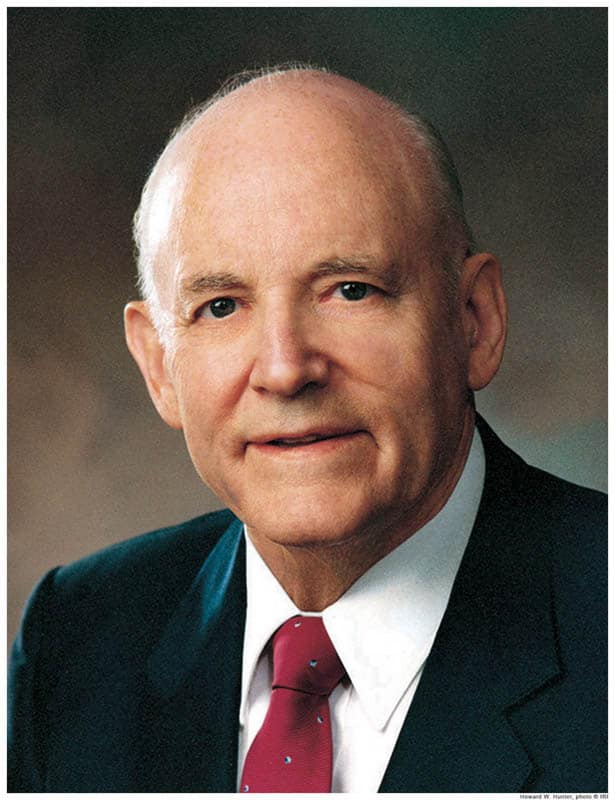Charity
SEARCH BY LIST
 Gifts of Love
Gifts of Love
Gift giving requires a sensitive giver and receiver. I hope we will use this little theory not to criticize the gifts that come our way this year, but to see how often our hearts are understood and gifts are given joyfully, even with sacrifice. . . I bear you my testimony that Jesus gave the gift freely, willingly, to us all. He said, “Therefore doth my Father love me, because I lay down my life, that I might take it again. No man taketh it from me, but I lay it down of myself” All men and women come into this life with that gift. They will live again, and if they will, they may live with him. And I bear you testimony that as you accept that gift, given through infinite sacrifice, it brings joy to the giver. Jesus taught, “I say unto you, that likewise joy shall be in heaven over one sinner that repenteth, more than over ninety and nine just persons, which need no repentance”. If that warms you as it does me, you may well want to give a gift to the Savior. Others did at his birth. Knowing what we do, how much more do we want to give him something. But he seems to have everything. Well, not quite. He doesn’t have you with him again forever, not yet. I hope you are touched by the feelings of his heart enough to sense how much he wants to know you are coming home to him. You can’t give that gift to him in one day, or one Christmas, but you could show him today that you are on the way. You could pray. You could read a page of scripture. You could keep a commandment. If you have already done these things, there is still something left to give. All around you are people he loves and can only help through you and me. One of the sure signs that a person has accepted the gift of the Savior’s Atonement is gift giving. The process of cleansing seems to make us more sensitive, more gracious, more pleased to share what means so much to us.
 Gifts of the Spirit
Gifts of the Spirit
There is one gift I would like to focus on—the gift of charity. Use charity, “the pure love of Christ”, and give service for the right reasons. Charity is the ability to make life more meaningful for others. It is the theme of the Relief Society for a reason. “Though I speak with the tongues of men and of angels, and have not charity, I am become as sounding brass, or a tinkling cymbal. “And though I have the gift of prophecy, and understand all mysteries, and all knowledge; and though I have all faith, so that I could remove mountains, and have not charity, I am nothing. “And though I bestow all my goods to feed the poor, and though I give my body to be burned, and have not charity, it profiteth me nothing. “Charity suffereth long, and is kind; charity envieth not; charity vaunteth not itself, is not puffed up, “Doth not behave itself unseemly, seeketh not her own, is not easily provoked, thinketh no evil” (1 Cor. 13:1–5). If we have these gifts and do not give of them to lift and to strengthen those around us in a caring way, this scripture tells us that “it profiteth [us] nothing.” My wife has taught us in our home a simple phrase: “Thee lift me and I’ll lift thee, and we’ll ascend together.” There are times when we need to be lifted. There are times when we need to be strengthened. Be that kind of friend and that kind of person who lifts and strengthens others. Never make someone have to choose between your ways and the Lord’s ways. And always make sure that you’re making it easier to live God’s commandments for those who are by your side and who are your friends. Then you will understand whether you have charity.
 The Great Commandment
The Great Commandment
What quality defines us best as members of The Church of Jesus Christ of Latter-day Saints? I would answer: we are a people who love the Lord with all our hearts, souls, and minds, and we love our neighbors as ourselves. That is our signature as a people. It is like a beacon to the world, signaling whose disciples we are. At the final day the Savior will not ask about the nature of our callings. He will not inquire about our material possessions or fame. He will ask if we ministered to the sick, gave food and drink to the hungry, visited those in prison, or gave succor to the weak. When we reach out to assist the least of Heavenly Father’s children, we do it unto Him. That is the essence of the gospel of Jesus Christ. If we wish to learn truly how to love, all we need to do is reflect on the life of our Savior. When we partake of the sacramental emblems, we are reminded of the greatest example of love in all the world’s history. “For God so loved the world, that he gave his only begotten Son.” The Savior’s love for us was so great that it caused “even God, the greatest of all, to tremble because of pain, and to bleed at every pore.” Because the Savior laid down His life for us, we have a brightness of hope, a confidence and security that when we pass from this worldly existence, we will live again with Him. Through the Atonement of Jesus Christ, we can be cleansed of sin and stand as partakers of the gift of our Almighty Father. Then we will know the glory that God “hath prepared for them that love him.” This is the transforming power of charity.
 A More Excellent Way
A More Excellent Way
We have a feeling of appreciation that our women’s Relief Society organization, celebrating this year its sesquicentennial anniversary, has always had as its theme “Charity Never Faileth.” Charity encompasses all other godly virtues. It distinguishes both the beginning and the end of the plan of salvation. When all else fails, charity—Christ’s love—will not fail. It is the greatest of all divine attributes. Out of the abundance of his heart, Jesus spoke to the poor, the downtrodden, the widows, the little children; to farmers and fishermen, and those who tended goats and sheep; to strangers and foreigners, the rich, the politically powerful, as well as the unfriendly Pharisees and scribes. He ministered to the poor, the hungry, the deprived, the sick. He blessed the lame, the blind, the deaf, and other people with physical disabilities. He drove out the demons and evil spirits that had caused mental or emotional illness. He purified those who were burdened with sin. He taught lessons of love and repeatedly demonstrated unselfish service to others. All were recipients of his love. All were “privileged the one like unto the other, and none [were] forbidden.” These are all expressions and examples of his unbounded charity. The world in which we live would benefit greatly if men and women everywhere would exercise the pure love of Christ, which is kind, meek, and lowly. It is without envy or pride. It is selfless because it seeks nothing in return. It does not countenance evil or ill will, nor rejoice in iniquity; it has no place for bigotry, hatred, or violence. It refuses to condone ridicule, vulgarity, abuse, or ostracism. It encourages diverse people to live together in Christian love regardless of religious belief, race, nationality, financial standing, education, or culture. The Savior has commanded us to love one another as he has loved us; to clothe ourselves “with the bond of charity”, as he so clothed himself. We are called upon to purify our inner feelings, to change our hearts, to make our outward actions and appearance conform to what we say we believe and feel inside. We are to be true disciples of Christ.
